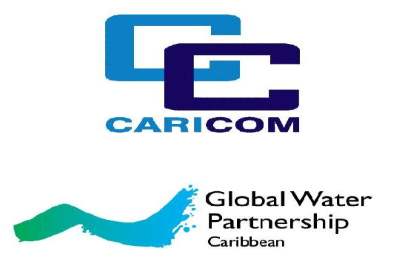The MOU signifies a building block for change as there is undoubtedly a need for greater cooperation on water-related issues in the region. Both organisations foresee the potential positive impact this relationship will have as they share the overall objective of improving water governance in the region.
Though the GWP-C and the CARICOM have worked together in the past, the MOU between the entities will formalise their affiliation as strategic regional partners; a partnership that intends to facilitate the exchange of relevant information and the harmonisation of their work programmes.
A major benefit of this synergy is the mutual commitment both agencies have in mobilising greater political will for the development and implementation of regional approaches/policies for water sector management in the Caribbean. GWP-C has over the years taken a proactive approach to addressing the water resources management problems in the region by co-convening an Annual High Level Session (HLS) for Caribbean Water Ministers with its partner, the Caribbean Water and Wastewater Association (CWWA). The HLS which is the only meeting of its kind in the Caribbean brings together Ministers and senior officials in water resources management to share experiences and ideas for addressing water sector needs in the region.
By way of the MOU, the GWP-C has agreed to include the CARICOM as a key consultative partner in the development and execution of its Annual HLS Ministerial Forum. This means that the Forum’s objectives will be more closely and clearly aligned with regional water development priorities.
Another connection between the GWP-C and the CARICOM that is important to note is their aim to deal with regional water issues in a coordinated manner. GWP-C and the CARICOM both see the value in bringing together stakeholders at the national and regional level to contribute to better water management. In this regard, the CARICOM has taken steps to establish a consortium of CARICOM institutions on water and are working towards creating a common water framework in the region.
This common water framework ties seamlessly into GWP-C’s efforts to support Caribbean countries in the management of their water resources by the promotion of an Integrated Water Resources Management (IWRM) approach. As a member of the consortium and now a key strategic partner of the CARICOM, GWP-C will help to support the work of the consortium and the programmatic linkages embodied in the common water framework for the region.
The MOU also aims to spur joint programmes between both agencies to strengthen the adaptation and adoption of IWRM plans and policies for the Caribbean and foster greater communication between the GWP-C and the CARICOM on IWRM progress in the region. Furthermore, both organisations through the MOU will also enter into joint fundraising activities of regional strategic significance on water.
The future outcomes of the MOU are promising and represent a bold step by the GWP-C and the CARICOM in addressing regional water security. It also highlights that partnerships play an important role in effective water governance and there is a need for more of them in the Caribbean.
